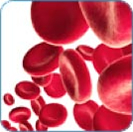| |
 |
Les recommandations du SIOG
pour des échelles d'évaluation
performantes en onco-gériatrie |
Abstract
Background: Screening tools are proposed to identify those older cancer patients in need of geriatric assessment (GA) and multidisciplinary approach. We aimed to update the International Society of Geriatric Oncology (SIOG) 2005 recommendations on the use of screening tools.
Materials and methods: SIOG composed a task group to review, interpret and discuss evidence on the use of screening tools in older cancer patients. A systematic review was performed and discussed by an expert panel, leading to a consensus statement on their use.
Results: Forty-four studies reporting on the use of 17 different screening tools in older cancer patients were identified. The tools most studied in older cancer patients are G8, fTRST and VES-13. . Across all studies, the highest sensitivity was observed for: G8, fTRST, OGS, SOF, ECOG-PS, SAOP2 and Gerhematolim. In 11 direct comparisons for detecting problems on a full GA, the G8 was more or equally sensitive than other instruments in all six comparisons, whereas results were mixed for the VES-13 in seven comparisons. In addition different tools have demonstrated associations with outcome measures, including G8 and VES-13.
Conclusions: Screening tools do not replace GA but are recommended in a busy practice in order to identify those patients in need of full GA. If abnormal, screening should be followed by GA and guided multidisciplinary interventions. Several tools are available with different performance for various parameters (including sensitivity for addressing the need for further GA). Further research should focus on the ability of screening tools to build clinical pathways and to predict different outcome parameters.
Références de l'article original :

L. Decoster et al. Annals of Oncology 2014; 26(2): 288-300
Synthèse réalisée par Claire Gervais (Unité fonctionnelle de soins oncologiques de support, hôpital européen Georges-Pompidou, Paris) :
Les échelles d'évaluation gériatriques constituent des outils rapides et intéressants dans la prise en charge initiale des personnes âgées en oncologie. Le test G8 ONCODAGE semble être l'un des plus sensibles pour orienter les patients vers une consultation d'onco-gériatrie spécialisée.
En 2005, la Société Internationale d'Onco-Gériatrie a proposé 4 grands axes de recommandations : le screening des patients, l'évaluation spécialisée, les interventions gériatriques et les fragilités1.
L'objectif de cette revue de la littérature a été d'évaluer les outils de screening que constituent les échelles d'évaluation onco-gériatriques.
Au total, 42 articles et 17 échelles d'évaluation ont été identifiés. Les tests les plus sensibles sont :
• G8 : 8 items pour déterminer la nécessité d'une évaluation onco-gériatrique2 (Figure1)
• Flemish version of the Triage Risk Screening Tool: 5 questions sur le risque de consultation aux urgences et de réhospitalisation
• Oncogeriatric screen: 10 questions sur 5 items pour une consultation spécialisée gériatrique
• Study of Osteoporotic Fractures Index: 3 items discriminants du risque de chutes, de fractures et de décès
• Karnofsky Performance Status and Eastern Cooperative Oncology Group-Performance Status: outils bien connus des oncologues et indispensables, bien qu'insuffisants, pour évaluer l'état général
• Senior Adult Oncology Program 2 screening: détermination de l'utilité d'une approche multidisciplinaire
• Gerhematolim: 27 questions et données biologiques spécifiques des hémopathies malignes
Le test G8 a été décrit comme le plus sensible (entre 65 et 92% selon les études) et prédictif de toxicités chimio-induites pour les cancers solides (p=0.025) mais pas pour les hémopathies malignes (p=0.905). De la même façon, cette échelle d'évaluation semble être un facteur pronostic de survie, sauf en hématologie.
En conclusion, les échelles d'évaluations sont une première étape dans l'évaluation gériatrique des patients en oncologie mais ne remplacent pas la consultation spécialisée. Le test du G8 semble être un outil rapide et fiable en pratique clinique.
Référence :

1. Wildiers H. Siog consensus on geriatric assessment in older cancer patients. J Geriatr Oncol. 2014 Jul;5 Suppl 1:S1–2.
2. Soubeyran P, Bellera C, Goyard J, Heitz D, Curé H, Rousselot H, et al. Screening for Vulnerability in Older Cancer Patients: The ONCODAGE Prospective Multicenter Cohort Study. PLoS ONE [Internet]. 2014 Dec 11 [cited 2015 Feb 28];9(12). Available from: http://www.ncbi.nlm.nih.gov/pmc/articles/PMC4263738/

Figure 1. Test G8 ONCODAGE selon Soubeyran et al. , disponible sur http://www.e-cancer.fr/rss-soins/6983 |
![]()
![]()

